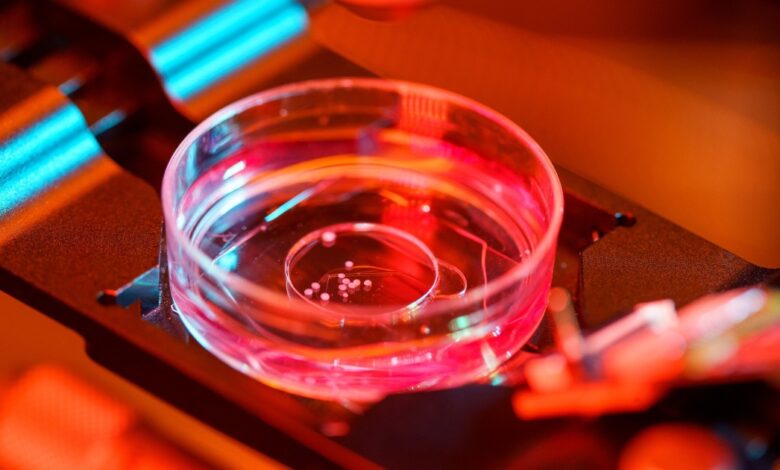Organoid intelligence: A new frontier in biocomputing?

In 2022, researchers at the Melbourne-based company Cortical Labs showed that brain cells grown on a chip can quickly learn to play the video game Pong. The study demonstrated, for the first time, what the researchers call “synthetic biological intelligence,” whereby networks of brain cells can self-organize their activity toward a specific aim, in response to limited feedback about the consequences of their actions.
Brett Kagan, the lead author of the Pong paper, is among an international team of scientists who now propose taking this further to create next-generation biocomputers powered by brain organoids, which would outperform silicon-based computers, and also be more energy efficient.
Writing in the journal Frontiers in Science, the team, led by Thomas Hartung of Johns Hopkins University, describe “organoid intelligence” as the new frontier of biocomputing. They suggest that this “could benefit humankind and our planet,” and call on researchers “to explore [its] potential to advance our understanding of the brain and unleash new forms of biocomputing while recognizing and addressing the associated ethical implications.”
Brain organoids
Brain organoids, popularly known as “mini-brains,” are artificial, self-assembling aggregates of neurons generated in the Petri dish from stem cells. As the stem cells grow, they differentiate into multiple cell types, which then organize themselves into layers resembling the embryonic brain. As such, organoids have found numerous applications, from providing experimental models of brain development and neurological diseases to screening new drugs and testing their toxicity.
Organoids are currently limited in size to aggregates of fewer than 100,000 cells, measuring approximately 0.5mm in diameter. According to Hartung and his colleagues, one crucial step towards organoid intelligence would be to scale up the structures 100-fold, to generate organoids containing 10 million cells, which would be capable of sophisticated computations.
Organoids would require an artificial blood supply to grow to this size. Scaling up would also require greater cellular diversity so that organoids would contain not just multiple neuronal cell types, but also different types of non-neuronal cells that we now know are also involved in processes such as learning and memory.
The researchers propose that organoids could be connected to each other, and they may even be hooked up to artificial sense organs that would provide them with information about the outside world (such as retinal organoids that could enable a form of sight).
They compare their hypothetical biocomputer to Frontier, which, since June 2022, has been the world’s most powerful supercomputer. Frontier has a processing capacity of 1.102 exaflops per second, which is comparable to that of the human brain but consumes 21 megawatts of power, compared to the brain’s consumption of just 21 watts.
The main ethical concern, they add, is that the organoids could gain some aspect of consciousness, and may experience pain or suffering. They propose that organoid intelligence be developed “in an ethically and socially responsible manner… where teams of ethicists, researchers, and members of the public collectively identify, discuss, and address ethical issues.”
Scientific challenges and ethical concerns
Hartung and his colleagues have high expectations for what organoid-powered biocomputers could achieve, and their proposal has garnered attention from the mass media, but some researchers are skeptical about their claims.
“This is really very much science fiction and, while intriguing, the science just isn’t there yet,” Madeline Lancaster, a brain organoid researcher at the University of Cambridge, told the Financial Times. “There are huge hurdles to overcome in order to do what the authors propose.”
Besides the scientific and technical challenges, the ethical concerns are unfounded. Some bioethicists have recently argued that organoids could gain consciousness as their size and complexity eventually increase, and some have proposed an ethical framework for working with them.
The idea that organoids could become conscious is also far-fetched. Consciousness is not generated by the brain alone, but rather through a complex set of interactions between the brain and the body. An organoid, even if connected to artificial sense organs, will still be little more than a “brain in a vat,” which cannot have conscious experiences or feel physical pain.




